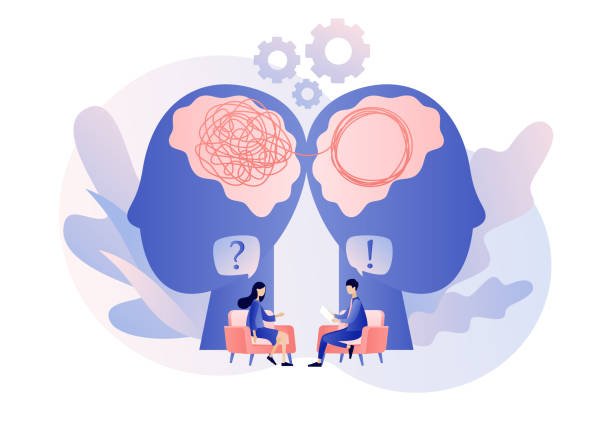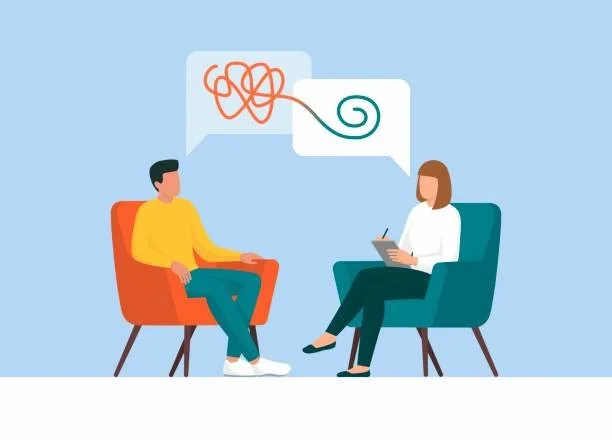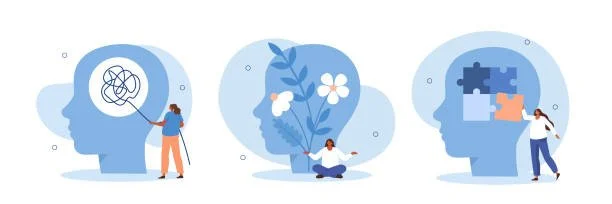Counselling Isn’t Just for Crisis: Why Therapy Can Help You at Any Stage of Life
Counselling isn’t just for when life falls apart. Whether you’re feeling stuck, navigating a life transition, or simply want to better understand yourself, therapy can be a powerful tool for growth. Learn how our private counselling practice in Coquitlam can support you—no crisis required.
Why Counselling Isn’t Just for Crisis
When you hear the word counselling, what comes to mind? For many people, it's something they associate with times of crisis—after a loss, during a mental health breakdown, or when life feels completely overwhelming. And while counselling can absolutely be a lifeline during those moments, it's also so much more than that.
At our Coquitlam counselling practice, we often remind clients that you don’t need to be in crisis to benefit from therapy. In fact, many people come to counselling because they want to feel better, build healthier relationships, gain insight into their patterns, or simply take care of their mental health. Counselling can be an important part of ongoing self-care and personal growth—not just a response to stress or trauma.
There’s a common misconception that counselling is only for emergencies. But much like you wouldn’t wait for a medical issue to become severe before seeing a doctor, you don’t need to wait until you're struggling to see a counsellor. Seeking counselling can be a proactive step toward understanding yourself more deeply, building emotional resilience, and developing practical tools to navigate everyday life.
Counselling offers a safe, supportive, and confidential space to explore your thoughts, feelings, and experiences. Whether you're going through a life transition, feeling stuck in old patterns, or simply want to gain clarity and direction, counselling can help you feel more grounded and empowered. It’s not about having something “wrong” with you—it’s about investing in your overall well-being.
If you're in Coquitlam or the surrounding areas and are considering counselling, know that it’s okay to seek support even when life feels “mostly fine.” Counselling can help you thrive—not just survive.
Here are just a few reasons people come to therapy—and why it might be helpful for you, too.
1. You’re Feeling Stuck or Unsure
Life doesn’t always come with a clear roadmap. Maybe you’re trying to figure out your next step in your career, questioning a relationship, or simply feeling disconnected from the person you used to be. Counselling gives you space to pause, reflect, and reconnect with yourself in a meaningful way.
2. You Want to Improve Your Relationships
Whether it’s with a partner, family member, or even your coworkers, relationships can be complicated. We often hear clients say, “I just want to communicate better,” or “I keep having the same arguments.” Therapy can help you understand patterns, improve communication, and build healthier, more connected relationships.
3. You’re Managing Stress or Burnout
Life in Coquitlam—like anywhere—can get busy. Between work, family, and everything in between, it’s easy to feel overwhelmed. Counselling can help you slow down, manage anxiety, and find tools that work for you. It’s not about “fixing” you—it’s about supporting you through the day-to-day.
4. You’re Going Through a Life Change
Transitions—big or small—can stir up a lot. Whether you’re becoming a parent, going through a breakup, retiring, or moving to a new city, these moments often come with a mix of emotions. Therapy offers a safe place to process, adjust, and find your footing again.
5. You’re Looking for Personal Growth
Therapy doesn’t have to be about solving a problem. Sometimes it’s just about becoming more you. Counselling can help you explore your values, set goals, and build the life you truly want. It’s a powerful form of self-care and personal development.
6. You Want to Be Proactive About Your Mental Health
Just like we go to the gym to keep our bodies healthy, counselling is a way to take care of your mental and emotional well-being. You don’t have to wait until things fall apart. You’re allowed to seek support before it feels urgent.
What Counselling Looks Like at Our Coquitlam Practice
If you’re considering counselling, we’re here to help you feel seen, heard, and supported. Our practice offers a welcoming, non-judgmental space where you can show up exactly as you are. We work with adults, youth, children, couples, and families, and tailor our approach to your unique needs and goals.
Whether you’re navigating a big change or simply wanting to check in with yourself, therapy can be an incredible investment in your well-being.
If you’ve been thinking about trying counselling—or even if you’re just a little curious—we’d love to connect. Reach out today to book a free consultation or learn more about how we can support you.
Managing Stress and Burnout: Tools from a Registered Counsellor in Coquitlam
Chronic stress and burnout are increasingly common concerns that can impact both mental and physical health—but they are not the same. While stress is often a temporary response to specific pressures, burnout is a more serious condition that develops over time and can lead to emotional exhaustion, detachment, and decreased functioning. At our counselling practice, we help clients recognize the difference between stress and burnout and provide personalized therapy and mental health support to promote long-term resilience, balance, and well-being.
In today’s fast-paced world, stress is more than just an occasional inconvenience—it’s something many of us live with every day. Whether it’s work pressure, parenting challenges, or emotional fatigue, stress can build up and lead to burnout. As registered counsellors in Coquitlam, we see how chronic stress can impact mental, emotional, and physical health. But the good news is: support and relief are possible.
What’s the Difference Between Stress and Burnout?
Stress is your body’s natural response to pressure. It can be short-term (like preparing for a big meeting) or chronic (such as constant job demands). Stress often feels like you’re juggling too much—but still hopeful that you can manage it.
Burnout, on the other hand, is a state of emotional, mental, and physical exhaustion caused by prolonged stress. It’s more than just feeling tired—it’s feeling depleted, disconnected, and numb. Common signs of burnout include:
Chronic fatigue or lack of motivation
Feeling emotionally drained
Increased irritability or detachment
Reduced performance or productivity
Trouble sleeping or frequent illness
If you relate to these signs, know that you’re not alone—and there are proven strategies that can help.
Tools to Manage Stress and Prevent Burnout
Here are several therapist-recommended strategies you can begin using today:
1. Set Healthy Boundaries
Saying “no” can be difficult, especially for people who are highly driven or empathetic. But without clear boundaries, we overextend ourselves. Begin by identifying your limits and communicating them clearly—both at work and at home.
2. Schedule Rest—Not Just Sleep
Intentional rest isn’t laziness—it’s essential. Create time in your week for things that recharge you: reading, walking in nature, listening to music, or simply doing nothing.
3. Practice Mindfulness
Mindfulness helps you reconnect with the present moment, instead of ruminating over the past or worrying about the future. Try short mindfulness exercises like:
Deep breathing (inhale for 4, hold for 4, exhale for 6)
Body scans to check in with how you’re feeling
Mindful walks where you notice your surroundings intentionally
4. Recognize and Challenge Negative Thoughts
Burnout often comes with self-critical or hopeless thoughts like “I can’t keep up” or “I’m not doing enough.” A counsellor can help you recognize these thought patterns and learn healthier ways of thinking through Cognitive Behavioural Therapy (CBT) techniques.
5. Seek Support—You Don’t Have to Do It Alone
Talking to a trained professional can provide relief, perspective, and a plan to move forward. Counselling offers a safe space to process what you’re going through, identify stressors, and build resilience.
How Counselling Can Help
At our Coquitlam counselling practice, we support individuals experiencing stress and burnout through a compassionate, evidence-based approach. Whether you’re overwhelmed by work, struggling with emotional exhaustion, or simply feeling “not yourself,” therapy can help you reconnect with your strengths and develop tools for lasting change.
Some of the approaches we use include:
Cognitive Behavioural Therapy (CBT)
Mindfulness-Based Stress Reduction (MBSR)
Solution-Focused Therapy
Emotionally-Focused Therapy (EFT) for relationship-related stress
Ready to Take the Next Step?
If you’re feeling burnt out or overwhelmed, you don’t have to navigate it alone. Our team of Registered Clinical Counsellors (RCCs) in Coquitlam offers individual counselling both in-person and online, tailored to your unique needs.
Located in the heart of Coquitlam and proudly serving the Tri-Cities area, we’re here to support your journey to wellness.
Book a Free Consultation Today
You deserve support, rest, and balance. Learn more about our counsellors or schedule a free phone consultation and take the first step toward feeling better.
Finding the Right Counsellor: A Quick Guide
How to Choose the Right Counsellor: Find clarity, connection, and the support that’s right for you.
Choosing a counsellor is one of the most important steps in your mental health journey. Whether you're seeking support for anxiety, depression, trauma, relationship issues, or personal growth, the right counselling relationship can make all the difference. But with so many options out there, how do you know who’s the right fit?
In this guide, we’ll walk you through the key considerations to help you choose the right counsellor for your needs.
1. Understand Why You’re Seeking Counselling
Before you begin your search, take a moment to reflect on what you’re hoping to get out of counselling. Are you looking for help with a specific issue like grief or stress? Do you need someone with expertise in trauma-informed care or neurodiversity? Knowing what you're seeking will help narrow down your choices.
2. Check Qualifications and Experience
Not all counsellors are the same. Look for someone who is professionally trained, registered with a recognized body (such as the BCACC), and has experience working with the concerns you’re facing. Don’t hesitate to ask about their background, areas of expertise, or counselling approach.
3. Consider Their Counselling Style and Approach
Counselling can take many forms — Cognitive Behavioural Therapy (CBT), EMDR, Dialectical Behavior Therapy (DBT), Client-Centered Therapy, and more. Some counsellors are more directive, while others focus on reflective listening and emotional support. Read about their approach and ask yourself whether that style resonates with you.
4. Think About Practical Factors
Logistics matter. Consider:
Location – Do you prefer in-person sessions or online counselling?
Availability – Can they accommodate your schedule?
Cost – Does the session fee align with your budget?
The right counsellor will meet you where you are both practically and emotionally.
5. Trust the Connection
No matter how qualified a counsellor is, the relationship matters most. Do you feel heard, understood, and safe? The therapeutic alliance (the connection between client and counsellor) is one of the strongest predictors of positive outcomes in counselling.
Many counsellors offer a free initial phone consultation. Use this time to ask questions, share what you're hoping for, and get a sense of whether the connection feels right.
6. Don’t Be Afraid to Change Counsellors
If you’ve started counselling and it doesn’t feel like a good fit, that’s okay. Finding the right counsellor is sometimes a process. You deserve a space where you feel respected, understood, and supported.
Final Thoughts
Finding the right counsellor can feel overwhelming, but it’s a powerful act of self-care. Take your time, trust your instincts, and remember that you are worthy of support that truly meets your needs.
If you're ready to explore counselling options and want to learn more about our counsellors’ approaches click here. To book an initial consultation with any of our counsellors click here. We’re here to help you find clarity, healing, and growth — at your pace.
What Are the Real Benefits of EMDR Therapy? Here’s What to Know
Struggling to move past old memories or anxious thoughts? EMDR therapy offers a unique, research-backed way to help your brain heal from emotional wounds. In this post, we break down benefits of EMDR and why so many people are turning to it for relief, clarity, and lasting change.
If you've been dealing with anxiety, trauma, or just feel stuck emotionally, you might’ve heard about EMDR therapy. At first glance, it might sound a little odd, Eye Movement Desensitization and Reprocessing?
But don’t let the technical name fool you. EMDR is actually a powerful (and surprisingly approachable) way to work through tough experiences and get some real relief. Let's break it down and talk about the actual, real-life benefits of EMDR.
So What Is EMDR?
It’s a therapy method that helps your brain reprocess traumatic or distressing memories in a healthier way so they don’t have the same emotional charge they once did. It’s like your brain’s way of finally finishing the “processing” on experiences it got stuck on.
Think of EMDR like your brain’s way of clearing out old emotional “files” that never quite got closed properly. These can be anything from a traumatic event to a smaller, painful memory that still lingers.
During an EMDR session, a therapist helps you revisit the memory in a safe, controlled way while using bilateral stimulation with eye movements, tapping, or sounds. It’s not magic, but it’s pretty amazing how effective it can be.
The Benefits of EMDR (And Why People Swear by It)
1. You Don’t Have to Talk Through Everything
This is one of the reasons many people love EMDR. Unlike traditional talk therapy, you don’t have to explain every detail of what happened. EMDR focuses more on how the memory feels and helps your brain process it in the background.
If you’re not ready (or just not the talky type), this can be a huge relief.
2. It Can Work Faster Than Traditional Talk Therapy
Some people notice changes after just a few sessions. Of course, everyone’s different, but EMDR often helps people feel real progress a lot quicker than they expected especially when it comes to old trauma or deeply rooted beliefs.
3. It’s Not Just for Trauma
While EMDR is best known for helping with PTSD, it can also used for many other presenting issues such as:
Anxiety
Panic attacks
Phobias
Grief
Low self-worth
Stress from difficult relationships
Negative self-beliefs
Basically, if there’s a memory or belief that feels “stuck” and keeps messing with your present, EMDR might help loosen its grip.
4. You Can Finally Feel Free From the Past
One of the most powerful benefits of EMDR is how it helps you change your relationship with painful memories. After working through them, most people say the memories are still there, but they don’t hurt anymore, they have less “emotional charge” and they are not triggered by them in the same way.
5. It Builds Real Resilience
EMDR doesn’t just help you heal old wounds, it also helps you feel more grounded in who you are now. You might find it easier to handle stress, be present in your relationships, and stop second-guessing yourself all the time.
Thinking About Trying It?
The idea of therapy can feel intimidating, especially if you’ve never done it before (or had a bad experience in the past). But EMDR is different and worth considering if you’re tired of carrying around the same emotional weight.
The benefits of EMDR go beyond just “feeling better.” It’s about understanding your past, making peace with it, and finally moving forward.



